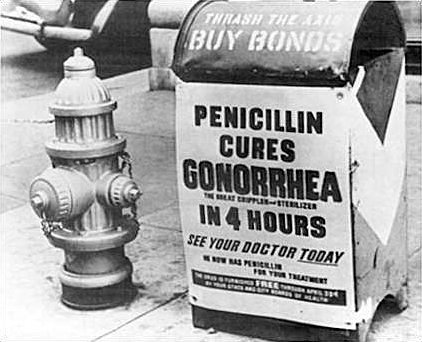This week I’m wading into the pretty controversial topic of antibiotics as an introduction to a new series on gut health. First, I want to put it out there that I am really glad we live in a time where antibiotics are available, but I believe we need to seriously reduce our exposure to them at all levels and tend to our gut health every day.
Why I like them
Before the advent of antibiotics, people died at an alarming rate from things we now can treat in 5 to 10 days with a cheap trip to the drug store. It’s been said that if we had had antibiotics during the plague we could have saved countless lives. Just a few weeks ago two people that I love had to take antibiotics. I say had to because these people are not the type to run to the doctor demanding antibiotics for the sniffles. One had a serious ear infection and one a serious kidney infection, and in both cases, antibiotics played an important and vital role in their recovery.
Why I tend to avoid them
Aside from antibiotic resistant bacteria like MRSA that will usher in the coming zombie apocalypse (kidding!), we are starting to make connections between antibiotics and what Dr. Martin J. Blaser calls our modern plagues. He writes that obesity, diabetes, asthma, cancer, autoimmune disease, and a whole host of prevalent modern ailments are a direct result of our abuse of antibiotics. From the pills we take to the antibacterial gel we squeeze all over our kids, antibiotics wrecking our microbiome, i.e. the trillions of fungi, bacteria, etc that live inside us.
Antibiotics kill everything, the germs we are trying to kill and the healthy microbes trying to keep us healthy. And that’s a real problem because antibiotics are way overprescribed, especially for kids. Not to mention that here in the States we have something of a germaphobic culture that causes us to sanitize everything, including ourselves and our living environments. This is devastating to our microbiome. In the coming weeks, I’ll be talking more about healing and taking care of our microbiome, but the first step is to address how we actively destroy it through the medicine we take, the products we use, and the food we eat. Here are some tips to reduce your and your families exposure to antibiotics.
1. Ask your doctor questions. When your doctor offers antibiotics to you or your children ask the following:
- “What should I expect if I take these drugs?”
- “What can I expect if I don’t take these drugs?”
- “What would happen if we took a wait and see approach?”
I can’t tell you how to respond to their answers because we all have our limits, but I will take a few more days of being sick to protect my long term health.
2. Stop trying to sanitize your world! Back away from the sanitizer gel, get rid of the bleach, and stop being so scared of germs. Before you eat or after you use the restroom wash your hands with NORMAL (not antibacterial) soap and water. Believe me, this is enough. Also, when you clean your house, you don’t need to try to wage war on the germs because, honestly, you aren’t going to win but you will probably do some damage to your own health in the process. For tips on cleaning without harming yourself, check out this post.
3. Reduce the amount of antibiotic-laden meat and animal products you eat. There has been some movement from big producers like Tyson’s and Cargill to reduce the amount of antibiotics used in their animals, but we have a long way to go before conventional meat is free from antibiotics. So be more conscientious about the animal products you put in your body. Vote with your checkbook by buying foods from farmers that do not use antibiotics, which is typically going to mean going with the product that is certified organic. It is going to cost you a little more for those antibiotic free eggs, but in the end it’s still going to be cheaper than managing a disease.
Good luck and stay tuned for more information on healing your gut.


3 thoughts on “Gut health 1: Bugs, guts, and antibiotic”